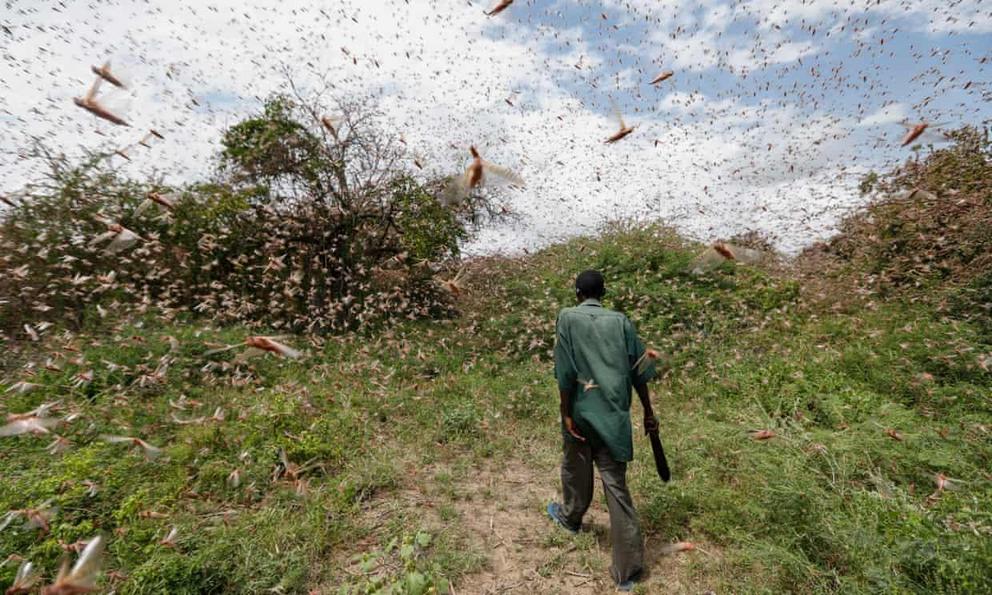Food fears grow as swarms of locusts reach Uganda and Tanzania
Massive swarms of locusts sweeping across much of east Africa have reached Uganda and Tanzania, the United Nations has said, threatening millions more people with hunger in an already fragile region.
Tanzania has detected swarms in its northern border areas close to Mount Kilimanjaro and hired three planes to spray pesticide, a tactic seen as the most effective means of countering the spread of the insects.
Ugandan authorities have rushed pesticides to affected areas and has mobilised thousands of troops.
“We are using motorised sprayers, a drone and manual sprayers,” Stephen Byantwale, the commissioner for crop protection at the ministry of agriculture, said. “They [locusts] are spreading like wildfire, so they are a real, major threat.”
The outbreak in east Africa is the most serious in decades and has already devastated crops across a swath of Kenya and Somalia.
Climate experts have pointed to unusually heavy rains, aided by a powerful cyclone off Somalia in December, as a major factor in the crisis. The locusts arrived from the Arabian peninsula after cyclones dumped vast amounts of rain in the deserts of Oman – creating perfect breeding conditions.
One especially large swarm in north-eastern Kenya measured 60km long by 40km wide. Even a small swarm of the insects can consume enough food for 35,000 people in a day.
The infestation from the Arabian peninsula has also affected India and Pakistan.
With further rains expected in the region in the coming weeks, experts fear the number of locusts if unchecked could grow by up to 500 times by June, when drier weather is expected.
One challenge is that many locusts are breeding in the semi-autonomous Puntland region of Somalia. Much of the territory there is threatened or held by al-Shabaab, the Islamist extremist group. That makes it difficult or impossible to conduct aerial spraying to kill the insects.
For the rest of this article please go to source link below.

